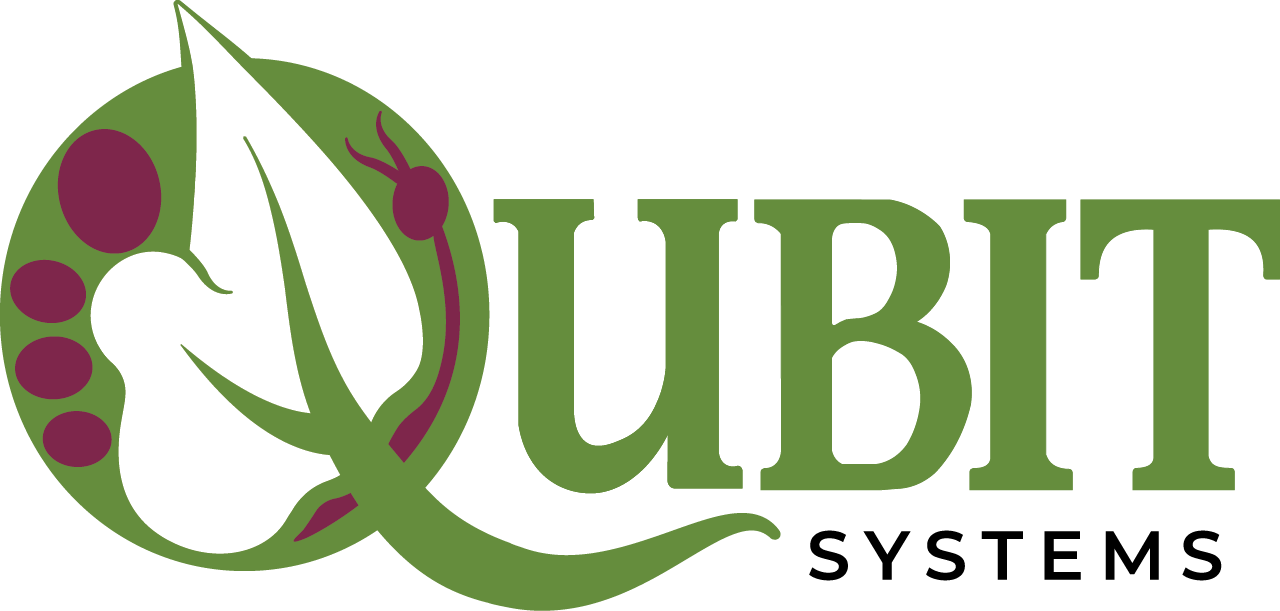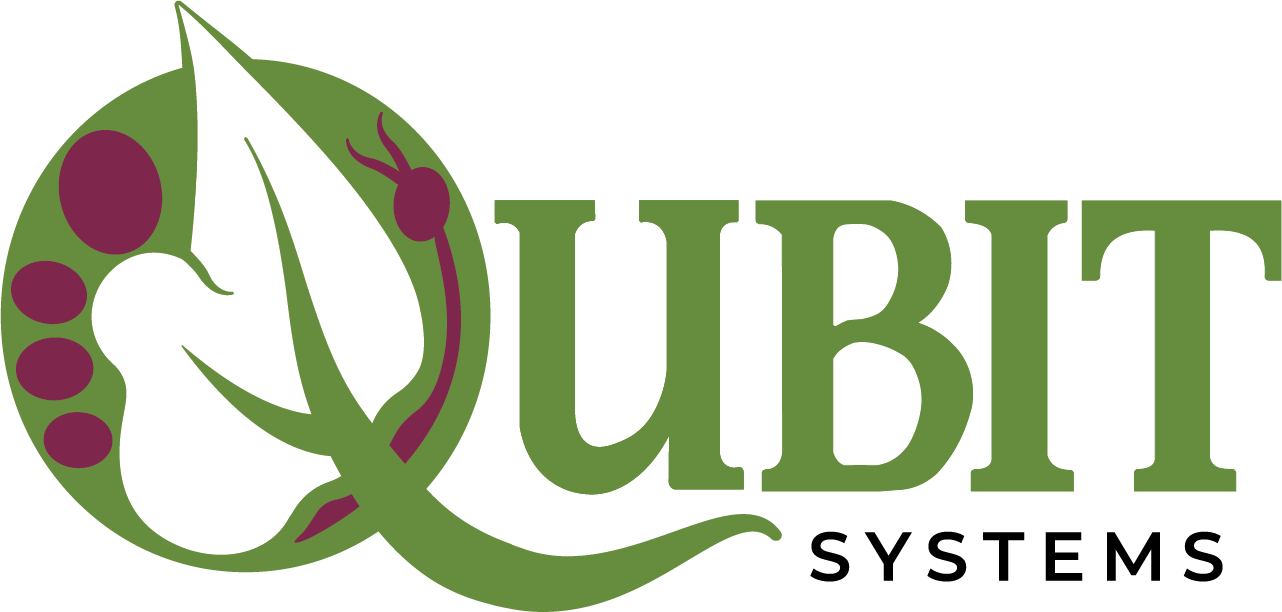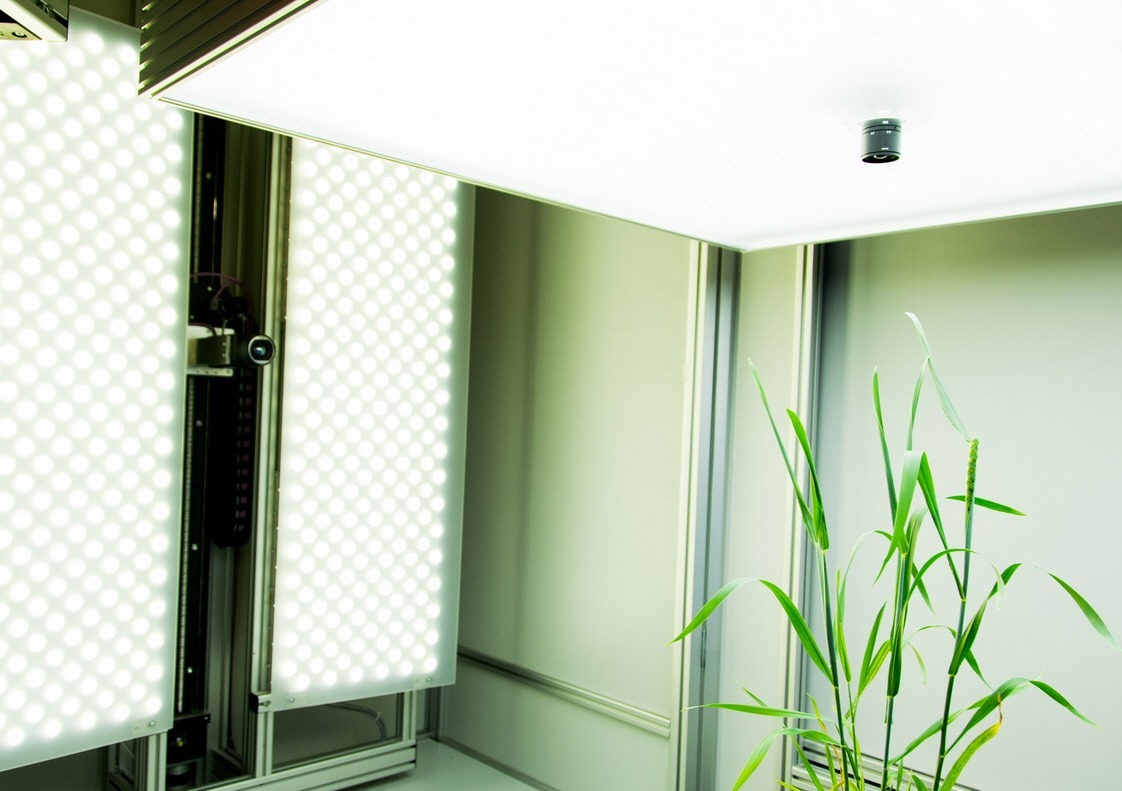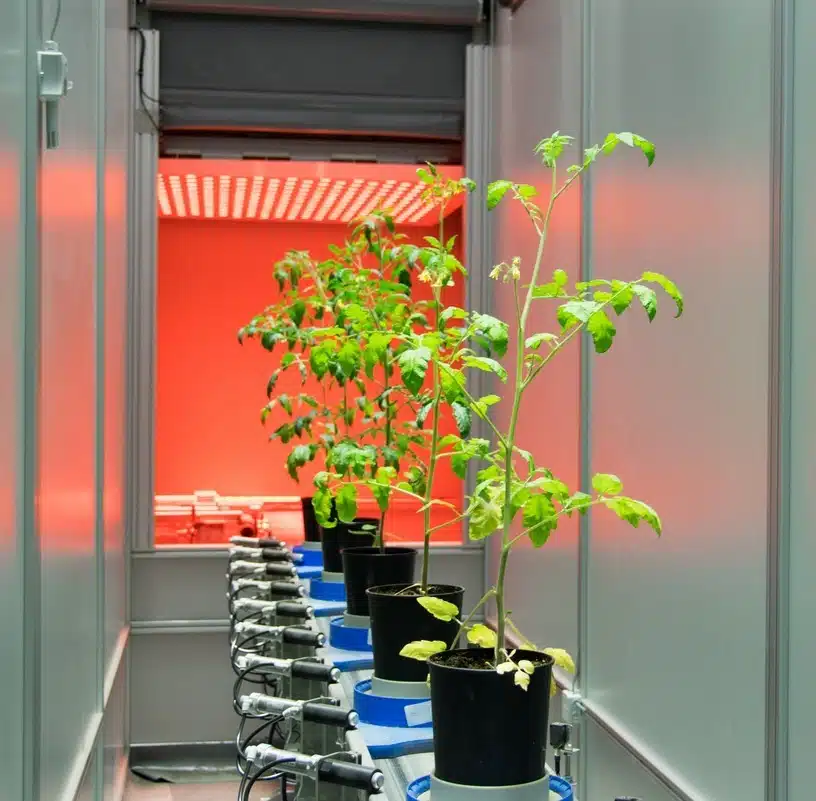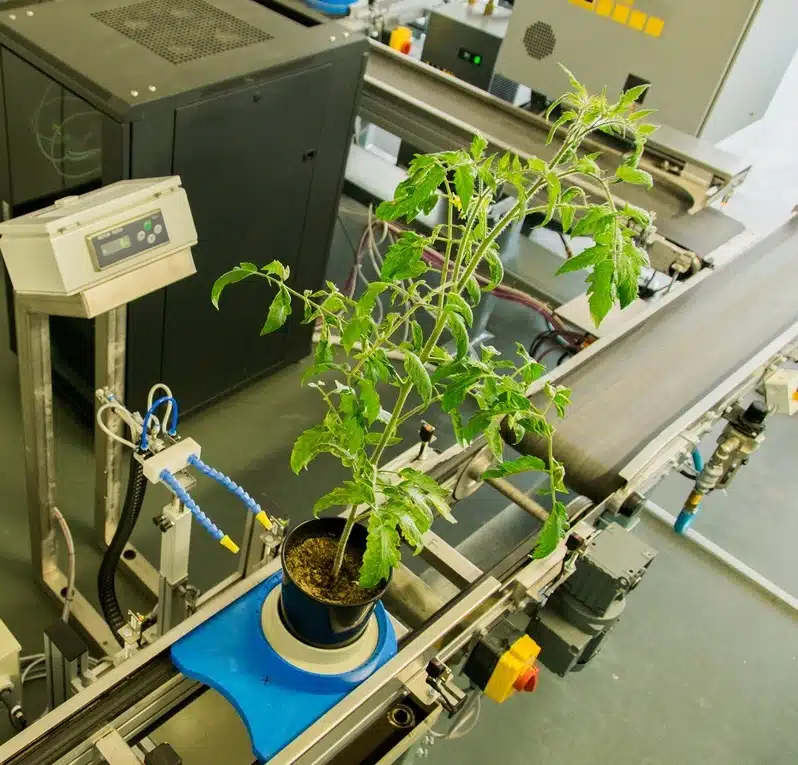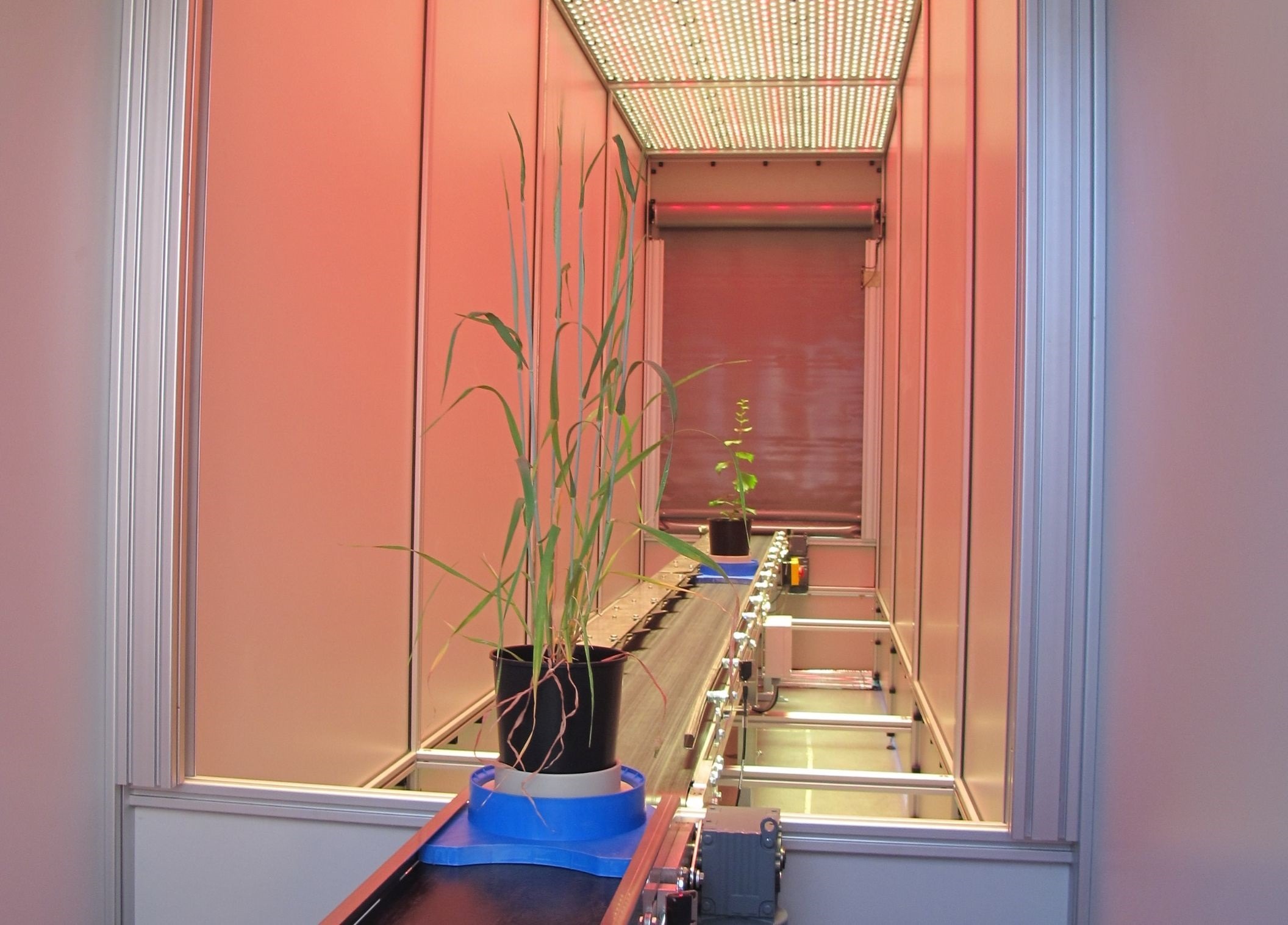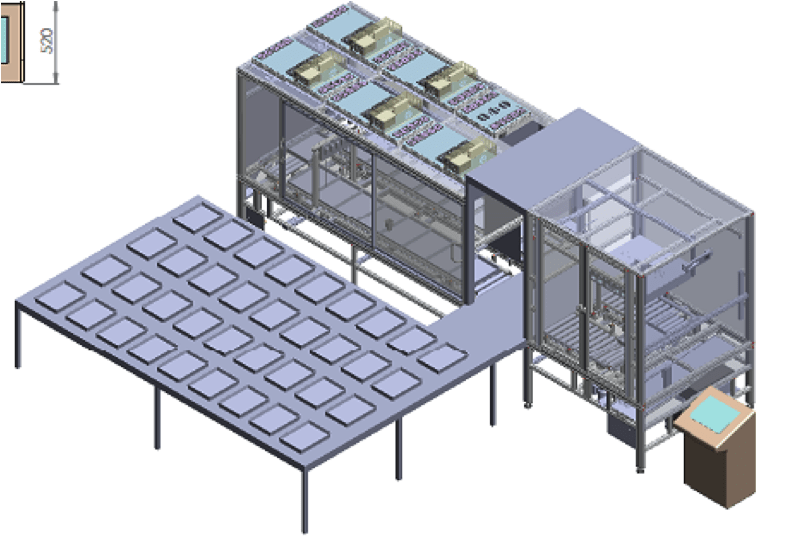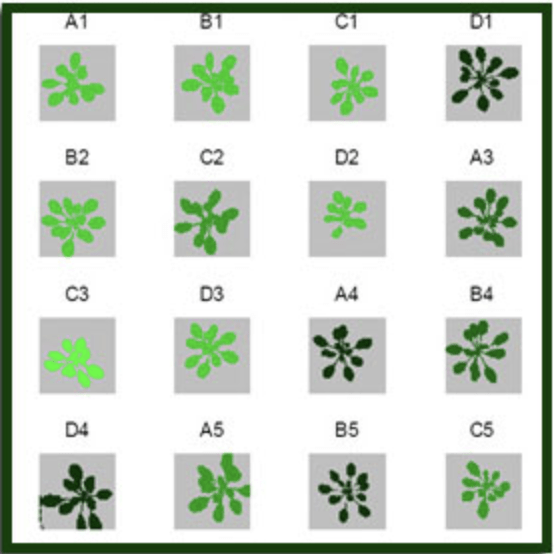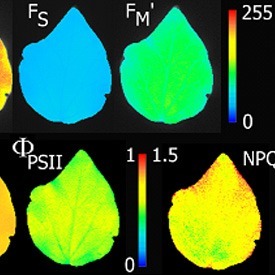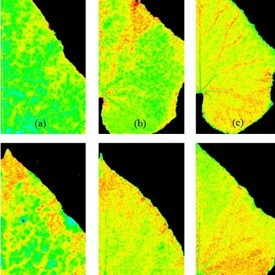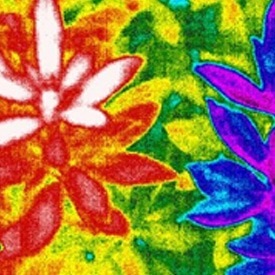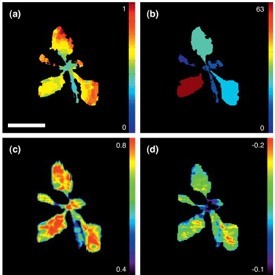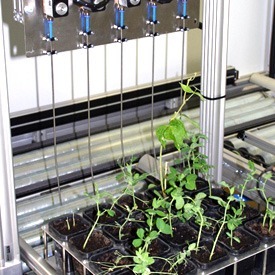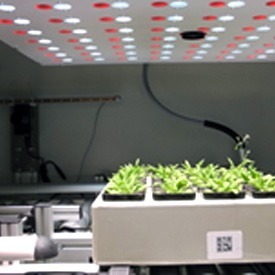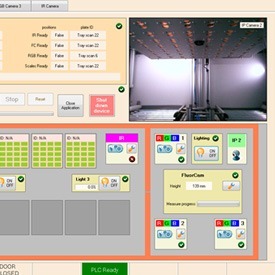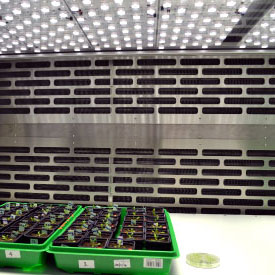The PlantScreenTM Modular System is designed for use in a greenhouse or a controlled environment, in which plants may be cultivated as well as analyzed. Larger plants, in pots, such as maize and wheat, may be studied throughout their entire life cycle, but the system is also adaptable for the cultivation and study of smaller plants grown in multiple pots on trays. Transport disks are used on a conveyor system to move plants from the cultivation area to a series of imaging stations, as well as stations for watering, weighing and irrigation. The transport discs can be equipped with different types of inserts to accommodate pots of different sizes.
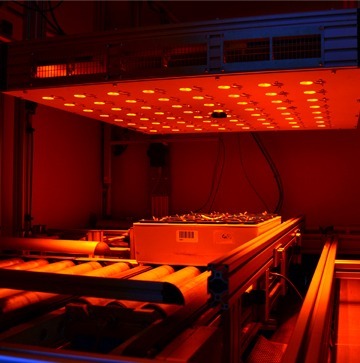
Qubit Phenomics in collaboration with its academic and industrial collaborators, has developed numerous techniques for non-invasive measurements of plant physiological processes, many of which have been integrated into our unique line of PlantScreenTM phenotyping systems. Sensors available for the PlantScreen™ Modular System are:
Our imaging sensors are implemented in closed imaging stations with automatic doors for maintaining a controlled light environment using dedicated illumination sources. Imaging stations may be equipped with a platform for lifting and rotating plants through 360 degrees, with images taken from multiple angles.
When plants are not being imaged, the conveyor may be used to randomise their position in the growth environment. An area of the system is reserved for manual loading and unloading of plants and for scoring of a subset of plants while the automated scoring is in stand-by or waiting mode.
The Modular platform incorporates various imaging stations for digital analyses of plant growth dynamics and physiological performance. Typically, an acclimatization tunnel is used at the entry point of the interconnected imaging arrays so that plants may be equilibrated under user-defined conditions prior to analysis. Pre-equilibration of plants is especially important when imaging leaf temperature and chlorophyll fluorescence kinetics, since data are dependent on irradiance conditions. Unique bar-codes or RFID identifiers are used for plant identification, with all pehnotyping and environmental data linked to the identifier in the data base. Relevant to this, the phenotyping system incorporates sensors for measurement of ambient conditions including temperature, relative humidity, PAR irradiance and spectral quality of the light.
A comprehensive PlantScreenTM Software package, with remote accessibility, is used to control all aspects of the plant transportation, irrigation and the imaging stations, as well as for data acquisition, image analysis and data base configuration. The modular design of the system allows additional features to be added as the user´s screening requirements evolve.
If required, Qubit Phenomics can design growth facilities optimised for plant phenotyping. We will also consult with clients on how best to incorporate phenotyping equipment into existing growth facilities. The adaptation tunnel for plant equilibration is a key feature of our phenotyping platforms, consisting of multichannel LEDs and a programmable interface for defining desired light regimes and spectral quality. Irradiance is programmable in smooth steps from zero to maximum (typically 2000 µmol/m2/s) in 1% steps. The tunnel is constructed as a light isolated box with double automatic light-tight entrance and exit doors, and is designed for both light and dark adaptation of the plants. The adaptation tunnel may be designed to accommodate one, or several lines of plants, with adaptation periods ranging from a few minutes to tens of minutes.
The Modular PlantScreenTM System includes high-precision watering and weighing stations for programmable delivery of both water and nutrients to plants throughout growth and during measurement cycles. Watering and nutrient delivery may be combined with automated weighing of plants in pots so that specific watering regimes may be programmed in software. These regimes may be used to impose drought stress or water logging of varying degrees of severity, imposed rapidly or gradually. Water application is gentle, without spillage or splashing of soil, and is adjustable for the different pot sizes. Schemes for watering to exact volume, relative volume or predefined weight can be pre-defined for single plants or groups of plants.
Key IT Features
- Comprehensive software package for system control, data acquisition, image analysis and data base configuration
- Plant Randomization
- Species-specific analysis
- Open database structure
- Remote access
- Automatic SMS and email notification service
- 24-hour online support service
- On-line environmental monitoring

A Comprehensive software package has been developed for system control, data acquisition, image analysis and database configuration. An intuitive graphical interface is used to control all hardware components actions, to control and monitor environmental conditions and to design experiments. A high-end industrial PC with touch screen is used for system control. Scheduling Assistant software with calendar functions allows the running of multiple experiments simultaneously. It also provides different modes for plant randomization, application of different experimental protocols per plant or group of plants, as well as plant handling regimes including dark/light adaptation and watering or nutrient delivery schemes.
All imaging data, as well as environmental and watering/weighing data, are stored in an SQL database, and are processed and available for inspection and analysis within seconds of acquisition. All raw and processed data can be analyzed easily by user-defined processing scripts.
PlantScreenTM Data Analyser software provides tools for data browsing, grouping, analysis, user-defined data reprocessing and export. Multiple clients can be connected to the database simultaneously, with different privileges assigned based on a built-in authentication mechanism. SMS and mail notification service is an integral part of the complete phenotyping system with 24-hour online support.
In the search for beneficial traits that may allow crops to resist abiotic and biotic stresses, fast and accurate methods are required for efficient and effective plant high-throughput phenotyping. Such methods must involve automated measurements of plant morphology, biochemistry and physiology to determine potential and actual yield under a variety of monitored environmental conditions. With over 20 years’ experience of designing instrumentation for plant imaging Qubit Phenomics, and its partners, arenow at the forefront of providing complete solutions for automated multidimensional plant phenotyping.
- High-throughput screening
- Morphology and growth assessment
- Nutrient management
- Photosynthetic performance
- Abiotic stress
- Pathogen interaction
- Trait identification
- Chemical screening
- Nutrient effects
Our modular PlantScreenTM Systems are available in numerous configurations that can be custom-designed to fit the client’s specific requirements. Layout in terms of dimensions, pot/tray format and choice of image-based sensors can be adapted to address specific research questions. Our approach is to work with the client at all stages of the project from concept to design, and from implementation to operation. We will optimise the system to fit within a pre-existing facility, or will assist in designing (and providing, if required) a new facility optimised for plant phenotyping The PlantScreenTM Systems are modular so that additional features may be added as the user´s screening requirements evolve.
